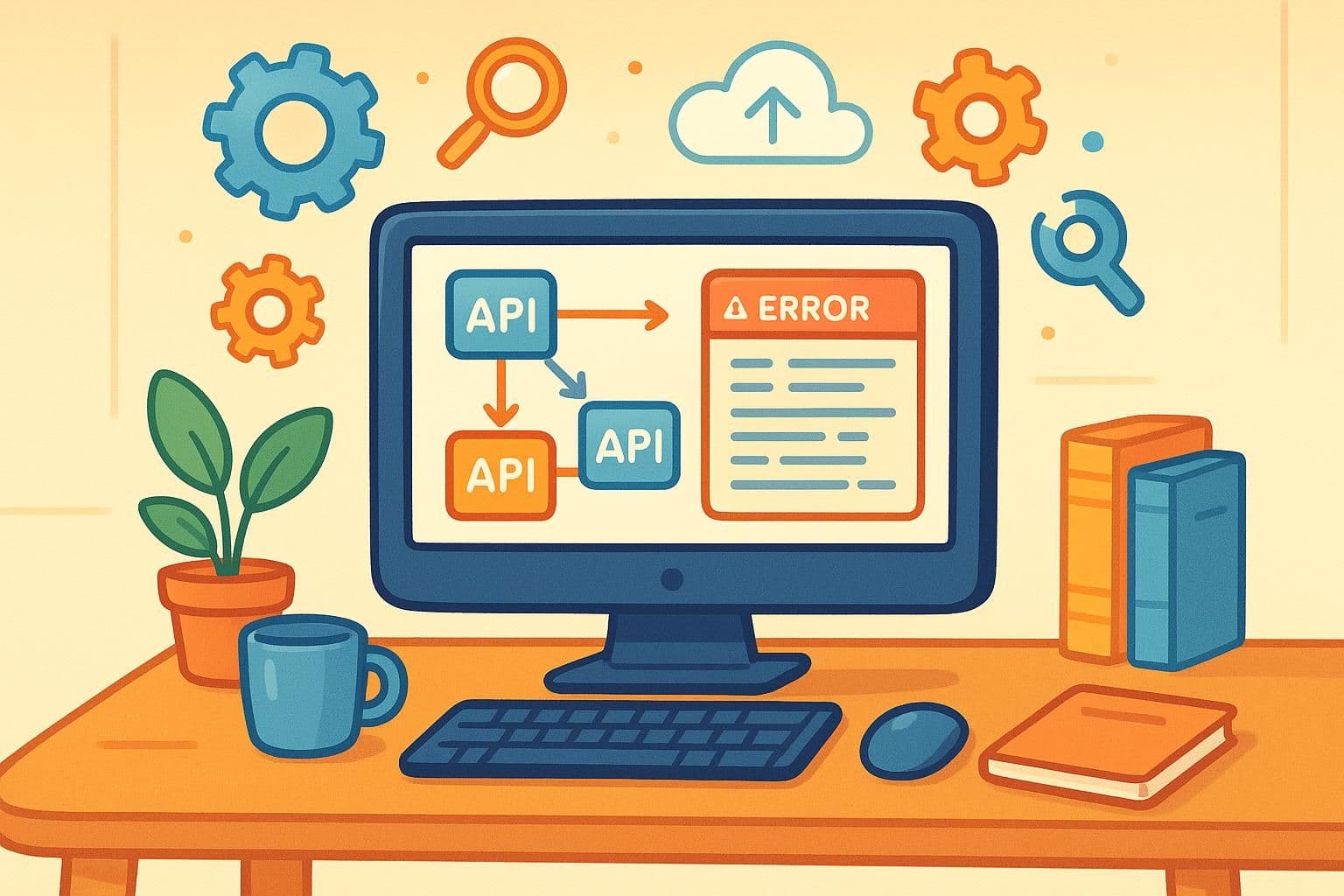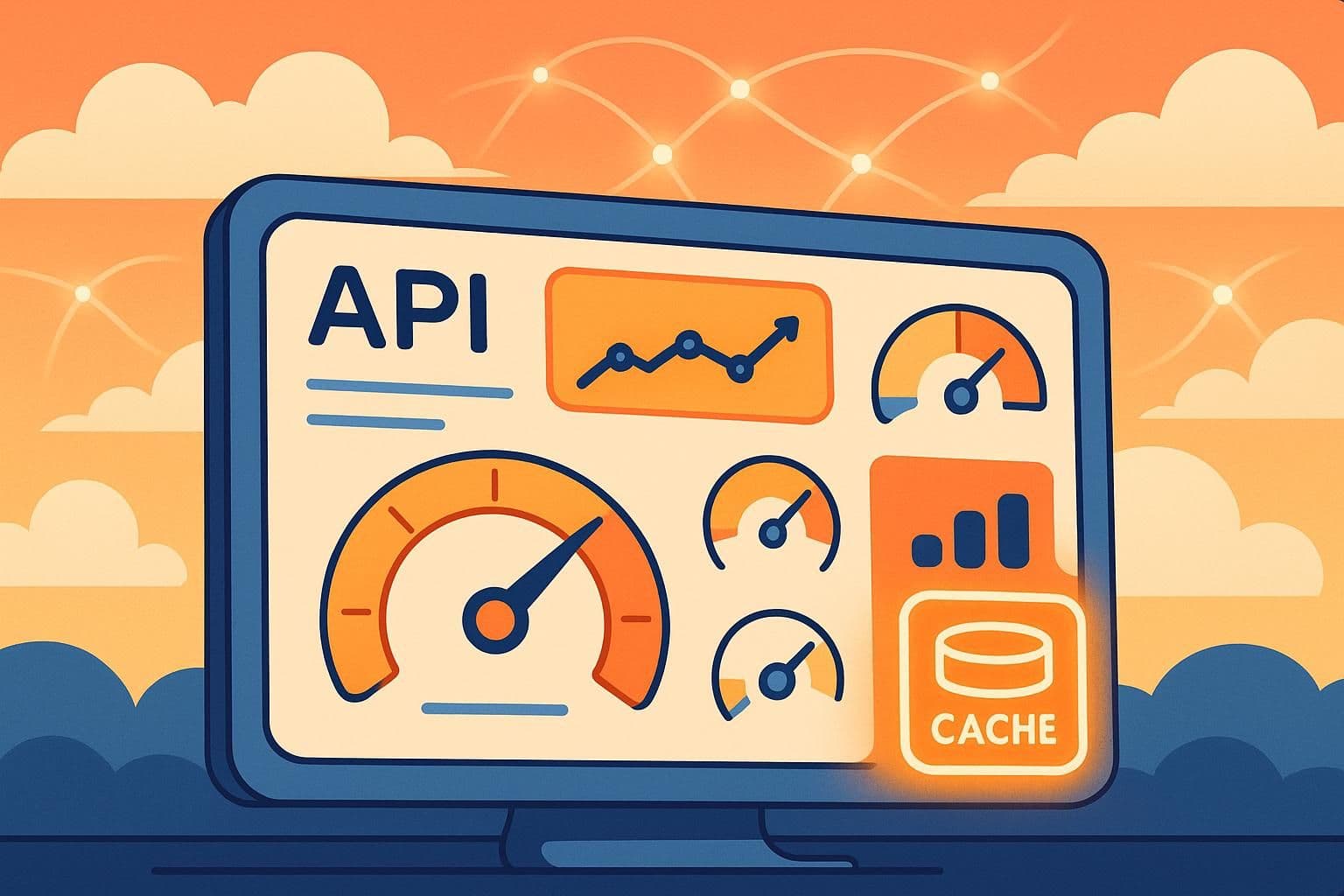WhatsApp Cloud API: Features, Benefits, and Implementation
Explore how the WhatsApp Cloud API enhances customer communication with automation, security, and cost-efficient solutions for US businesses.

99.9% uptime. 1,000 free conversations. Zero server maintenance.
The WhatsApp Cloud API simplifies customer communication for businesses by offering a scalable, cloud-hosted messaging solution. With direct access to Meta’s infrastructure, it eliminates the need for third-party providers and costly server management.
Here’s what you’ll learn in this guide:
- Key features like automated workflows, bulk messaging, and CRM integration
- How US companies are reducing costs with conversation-based pricing
- Practical steps to set up and optimize workflows using low-code tools like Latenode
Let’s break down how this API transforms customer engagement.
Mastering WhatsApp Business API: Complete Guide with ...
Main Features
The WhatsApp Cloud API offers a reliable way for businesses to manage high-volume messaging without the hassle of maintaining infrastructure. Here's a closer look at its standout features.
Cloud Infrastructure
Powered by Meta's cloud technology, the WhatsApp Cloud API guarantees a 99.9% uptime SLA. It handles up to 80 messages per second by default, with the ability to scale up to 250 messages per second if needed [1]. This makes it ideal for businesses managing large-scale communication.
The cloud-hosted design removes the need for dedicated server upkeep by offering:
- Automatic scaling with built-in redundancy and failover mechanisms
- Real-time processing to ensure fast and efficient message delivery
This performance is backed by strong security protocols to keep data safe.
Security Features
Security is a top priority for the WhatsApp Cloud API, which uses end-to-end encryption (E2EE) based on the Signal protocol [3]. This ensures that messages remain private from the moment they're sent to when they're received.
Meta employs a "Defense in Depth" strategy, which includes:
- SOC 2 certification compliance [2]
- Routine penetration tests and vulnerability checks [2]
- Strict access controls and authentication measures
- Support for two-factor authentication (2FA) [3]
"Every WhatsApp message, including messages between people and businesses, is protected by the same industry-leading Signal encryption protocol, that protects messages from before they're sent until they're delivered to the intended recipient." - WhatsApp Business [2]
These measures ensure that both businesses and customers can communicate securely.
Low-Code Platform Support
The WhatsApp Cloud API works seamlessly with Latenode, a low-code automation platform. This allows businesses to design and automate messaging workflows without needing advanced programming skills. Using Latenode's intuitive interface, teams can create and manage complex messaging scenarios effortlessly.
Islam B., a software company CEO, shares: "AI Nodes are amazing. You can use it without having API keys, it uses Latenode credit to call the AI models which makes it super easy to use." [4]
Key features of this integration include:
- A visual interface for creating message workflows
- Customizable logic for handling responses
- AI-driven code generation to simplify development
- Compatibility with existing business tools for seamless integration
Advantages for US Companies
The WhatsApp Cloud API brings a range of benefits for US businesses aiming to improve customer communication. Here's a closer look at why it's especially useful in the American market.
Pricing Structure
The API's conversation-based pricing model offers an affordable solution for businesses in the US. Each business gets 1,000 free service conversations per month [1], making it an appealing option for small and medium-sized enterprises.
Here’s the US-specific pricing breakdown (in USD) [5]:
| Conversation Type | Cost per Conversation |
|---|---|
| Marketing Messages | $0.025 |
| Utility Messages | $0.015 |
| Authentication | $0.0135 |
| Service Messages | $0.0088 |
This straightforward pricing structure removes the need for third-party fees. By using Latenode's automation platform, businesses can further control their messaging expenses through efficient routing and conversation management tools. Beyond saving money, the API also helps improve customer service processes.
Customer Service Improvements
High cart abandonment rates in the US push businesses to seek better ways to engage with customers, and the WhatsApp Cloud API provides effective solutions. It enables:
- 24/7 Automated Support: Maintain non-stop customer service without adding extra staff.
- Personalized Messaging: Segment customers and tailor messages based on their preferences and behavior.
- Rapid Response: Quickly address customer inquiries with a reliable infrastructure.
The platform includes a visual workflow builder, allowing customer service teams to design advanced response systems without needing deep coding expertise.
US Regulatory Alignment
US businesses also benefit from the platform's strong focus on regulatory compliance. Key features include:
- Data Protection: Meta employs a Defense in Depth strategy to ensure robust security measures [2].
- Privacy Compliance: The system adheres to major US privacy regulations by offering:
- Clear opt-in and opt-out options.
- Secure handling of customer information.
- Tools for managing communication preferences [6].
sbb-itb-23997f1
Setup Guide with Latenode
Here’s a step-by-step guide to integrating the WhatsApp Cloud API with Latenode.
Integration Steps
- Start in Latenode: Open your Latenode dashboard and create a new workflow. Use the 'Trigger on Webhook' node as the starting point.
- Set Up API Details: Enter your Business Account ID, access token, and webhook verification details. Test the connection to ensure everything is working correctly.
- Design Your Workflow: Use Latenode's visual builder to create an automation workflow. This will process incoming WhatsApp messages and trigger appropriate responses.
Once the basic setup is complete, you can use Latenode's tools to optimize and manage your messaging workflows effectively.
Latenode Tools Guide
Latenode offers several key tools to streamline your automation efforts:
- AI Code Copilot: This tool helps create custom logic for handling messages. It’s especially useful for managing complex routing rules or crafting automated responses with message templates.
- Database Management:
- Store customer chat histories.
- Monitor message delivery statuses.
- Keep track of template message variations.
- Log metrics to evaluate automation performance.
- Webhook Configuration:
- Instantly respond to incoming messages.
- Track delivery notifications.
- Monitor read receipts.
- Handle status updates in real time.
These tools make it easier to manage and refine your workflows, ensuring a smooth messaging experience.
Implementation Examples
Here are some practical ways to apply the WhatsApp Cloud API, showcasing how its cloud infrastructure, security features, and low-code options can be used effectively.
Support Workflow Examples
Automating support workflows with the WhatsApp Cloud API can streamline customer service and improve response times. Below are key automation setups:
- Initial Response System
Configure the workflow to:- Acknowledge receipt of messages.
- Collect essential details and direct inquiries to the appropriate department.
- Clearly communicate response time expectations.
- Issue Classification
Use keyword recognition to create an intelligent routing system:- Assign ticket numbers for each support request.
- Redirect product-related questions to specialists.
- Send billing-related inquiries to the accounting team.
- Forward technical issues directly to the support team.
- Follow-up Automation
Keep customers informed with automated updates:- Notify them of ticket status changes.
- Provide resolution updates.
- Share satisfaction surveys.
- Link relevant support documentation.
Marketing Message Setup
The API isn’t just for support - it’s also a powerful tool for marketing, all while staying compliant with US regulations.
Example Template Message:
Hi {customer_name},
{personalized_offer}
Reply STOP to opt out.
Use this structure to:
- Schedule messages between 9:00 AM and 8:00 PM local time.
- Maintain consistent branding across communications.
- Track engagement metrics to measure performance.
For example, a contract automation company reported impressive results with this approach:
- 62% increase in lead generation.
- 45% rise in lead engagement.
- 40% boost in conversion rates.
- Response times reduced from 24 hours to just 4.8 hours (Source: Latenode Blog, October 15, 2024).
Performance Tips
To get the most out of the WhatsApp Cloud API while keeping costs manageable, consider these strategies:
- Message Delivery Optimization
- Monitor delivery rates using webhooks.
- Use automatic retries and batch processing to ensure messages are sent efficiently.
- Cost Management
- Group similar messages for bulk sending to reduce expenses.
- Use pre-approved template messages whenever possible.
- Schedule non-urgent messages during off-peak hours to save costs.
- Engagement Tracking
- Keep an eye on metrics like message open rates, response times, conversion rates, and customer satisfaction scores.
Summary
The WhatsApp Cloud API is transforming how businesses in the US manage communication by automating customer interactions and streamlining workflows. Built on Meta's cloud infrastructure, it guarantees a 99.9% uptime SLA, ensuring dependable performance for essential operations. Businesses also benefit from cost savings, including 1,000 free conversations per month, and straightforward integration options to improve customer service processes.
Latenode's low-code platform makes integrating the WhatsApp Cloud API simple and efficient. As Angshuman Banerjee explains, "Strategically, this was Meta's effort to promote WhatsApp and increase their business" [1]. Combining cloud infrastructure, security measures, and automation tools, the API provides a strong foundation for modern communication needs. For US companies, the WhatsApp Cloud API delivers:
- Cost Savings: Direct API access reduces expenses by cutting out intermediaries.
- Improved Efficiency: Automates tasks like support, marketing, and customer service.
- Scalability: Cloud-based infrastructure adapts to growing business demands.
FAQs
How does the WhatsApp Cloud API protect customer data and ensure secure communication?
The WhatsApp Cloud API safeguards customer data and communication using end-to-end encryption, ensuring messages are encrypted on the sender's device and decrypted only on the recipient's device. This means no third party, not even WhatsApp, can access the message content.
Additionally, the platform adheres to strict data privacy protocols, processing data solely for delivering messages and not storing it on servers once delivery is complete. The API also complies with SOC 2 certification standards, employing robust security systems to ensure data is handled securely and responsibly.
These measures provide businesses and their customers with a highly secure and trustworthy communication channel.
How can I integrate the WhatsApp Cloud API with Latenode to automate workflows?
Integrating the WhatsApp Cloud API with Latenode to automate workflows involves a few straightforward steps. First, ensure you have access to the WhatsApp Cloud API by setting up a developer account with Meta and obtaining the necessary API credentials, such as the access token and phone number ID. Next, configure these credentials within your Latenode workspace to establish a secure connection.
Once connected, you can create automated workflows by using Latenode's low-code tools to design processes that send and receive WhatsApp messages based on triggers, such as customer inquiries or order updates. This integration allows you to streamline communication and improve customer engagement efficiently. For detailed instructions, refer to the implementation guide provided in the article.
What are the benefits of WhatsApp Cloud API's conversation-based pricing model for US businesses?
The conversation-based pricing model of the WhatsApp Cloud API offers US businesses a straightforward and cost-effective way to manage customer interactions. This model charges based on 24-hour conversation sessions, with rates varying by the type of conversation, such as customer-initiated or business-initiated.
Additionally, businesses receive 1,000 free service conversations each month, helping reduce costs while encouraging engagement. This pricing structure allows businesses to better control expenses, scale communication efforts efficiently, and enhance customer satisfaction through timely responses and personalized interactions.
Related posts



